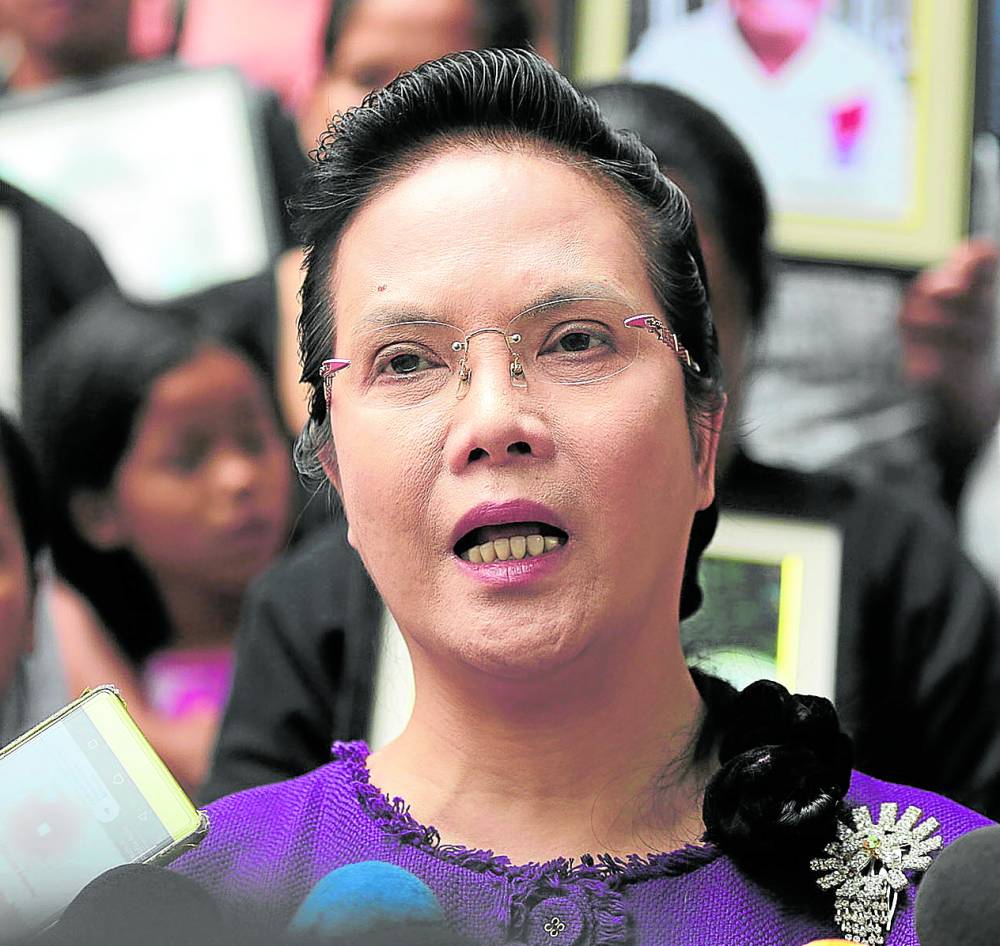Health chief urges PAO head to get jabbed

Atty. Persida Acosta INQUIRER FILE PHOTO
Public Attorney’s Office (PAO) chief Persida Acosta remains in the eye of a storm for her public admission that she is unvaccinated against COVID-19.
Citing her age and existing comorbidities, Health Secretary Francisco Duque III on Thursday called on Acosta to get jabbed, reminding her that she could be more vulnerable to severe infection.
“I am appealing to PAO Chief Acosta—I think she is also about to become a senior citizen—to get additional protection through vaccination,” Duque told reporters.
“She said she has other illnesses. All the more that she needs to get inoculated because of her comorbidities,” he said.
Justice Secretary Menardo Guevarra said he had directed Acosta to abide by government requirements for unvaccinated employees reporting on-site to regularly get tested for the coronavirus at their own expense.
Article continues after this advertisementGuevarra told reporters that the PAO chief was supposed to “ensure a COVID-safe working environment in her agency without sacrificing efficiency.”
Article continues after this advertisementAcosta earlier admitted in a television interview that she had chosen not to get vaccinated due to her age and health considerations. She also said she was waiting for a protein-based vaccine.
Currently, the COVID-19 vaccines available in the Philippines are mRNA- or RNA (ribonucleic acid)-based (Moderna, Pfizer); inactivated (Sinovac, Sinopharm); and adenovirus- or viral-vector-based (Janssen, AstraZeneca, Sputnik V).
Protein-based Novavax has been authorized for use by European Union regulators and the World Health Organization. It has been approved for use in the Philippines but is not yet available here.
In danger
Acosta’s health may be imperiled if she contracts COVID-19, Duque said.
“We don’t want her to be in danger, most especially if it becomes a severe to critical … infection. We know that senior citizens and those with comorbidities are the ones at high risk for severe or critical COVID-19,” he said, adding:
“So I’m appealing to her: For the sake of your health and your life, get vaccinated.”
The Inquirer phoned Acosta on Thursday for comment. She replied by text message that she “can’t talk right now.”
The PAO chief had earlier raised questions about the dengue vaccine Dengvaxia and attributed the death of a number of children to its use.
In citing the government requirements that Acosta had to comply with, Guevarra was referring to Resolution Nos. 148-B and 149 issued by the Inter-Agency Task Force for the Management of Emerging Infectious Diseases issued Nov. 11, 2021 and Nov. 18, 2021, respectively.
These resolutions state that beginning Dec. 1 last year, business owners were to require employees to be vaccinated against COVID-19 in order to work on-site; otherwise, they had to pay for a swab test at least once every two weeks.
Protection
Last Tuesday, Guevarra said Acosta had the right to refuse COVID-19 vaccination despite being a public official, but she had to obey government regulations restricting the movement of unvaccinated persons in the interest of public safety.
At the Laging Handa briefing on Thursday, Health Undersecretary Myrna Cabotaje urged unvaccinated government personnel and officials to get jabbed in order to protect themselves and their coworkers.
Cabotaje, who chairs the National Vaccination Operations Center, acknowledged that vaccination was not mandatory in the country, but nonetheless appealed to government personnel to get the shots in order to avert the spread of the virus in workplaces.
Impractical
While the government has not made COVID-19 vaccination a requirement, it has imposed restrictions on the movement of the unvaccinated. A number of local government units have issued ordinances requiring the unvaccinated to stay home unless going out to work or to secure essential goods and services.
The Department of Transportation has imposed a “’no vaccination, no ride” policy barring them from all modes of public transportation unless they can show proof of exemption from inoculation or that they are reporting for work.
The policy has been criticized as impractical and discriminatory to the poor as it has prevented many from going to work or from earning a living, and only affects the unvaccinated who do not have their own vehicles. —With a report from Leila B. Salaverria